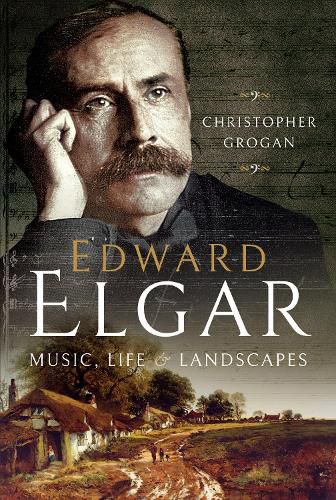Readings Newsletter
Become a Readings Member to make your shopping experience even easier.
Sign in or sign up for free!
You’re not far away from qualifying for FREE standard shipping within Australia
You’ve qualified for FREE standard shipping within Australia
The cart is loading…






More perhaps than any other composer, Edward Elgar (1857-1934) has gained the status of an ‘icon of locality’, his music seemingly inextricably linked to the English landscape in which he worked. This, the first full-length study of Elgar’s complex interaction with his physical environment, explores how it is that such associations are formed and whether it is any sense true that Elgar alchemised landscape into music. It argues that Elgar stands at the apex of an English tradition, going back to Blake, in which creative artists in all media have identified and warned against the self-harm of environmental degradation and that, following a period in which these ideas were swept away by the swift but shallow tide of Modernism in the decades after the First World War, they have since resurfaced with a new relevance and urgency for twenty-first century society. Written with the non-specialist in mind, yet drawing on the rich resources of post-millennial scholarship on Elgar, as well as geographical studies of place, the book also includes many new insights relating to such aspects of Elgar’s output as his use of landscape typology in The Apostles, and his encounter with Modernism in the late chamber music. It also calls on the resources of contemporary social commentary, poetry and, especially, English landscape art to place Elgar and his thought in the broader cultural milieu of his time. A survey of recent recordings is included, in the hope that listeners, both familiar and unfamiliar with Elgar’s music, will feel inspired to embark on a voyage of (re)discovery of its endlessly rewarding treasures. AUTHORS: Christopher Grogan is currently Head of Information Services at the Cambridge Theological Federation, prior to which he was, for 13 years, Director of Collections and Heritage for the Britten-Pears Foundation. Since completing his doctorate on Elgar’s The Apostles in 1989, he has written extensively on English music and is the author of the well-received Imogen Holst: A Life in Music (2nd ed., Woodbridge: Boydell Press, 2010). He is also a contributing editor to the Elgar Complete Edition. He lives in Suffolk with his wife, three children and Bichon Frise. Suzie Grogan is a freelance writer in the fields of literary and social history. She is the author of Shell Shocked Britain: The First World War’s Legacy for Britain’s Mental Health (Pen and Sword, 2014) and Death Disease & Dissection: The Life of a Surgeon Apothecary 1750-1850 (Pen and Sword, 2017) also inspired by her lifelong study of John Keats.
$9.00 standard shipping within Australia
FREE standard shipping within Australia for orders over $100.00
Express & International shipping calculated at checkout
More perhaps than any other composer, Edward Elgar (1857-1934) has gained the status of an ‘icon of locality’, his music seemingly inextricably linked to the English landscape in which he worked. This, the first full-length study of Elgar’s complex interaction with his physical environment, explores how it is that such associations are formed and whether it is any sense true that Elgar alchemised landscape into music. It argues that Elgar stands at the apex of an English tradition, going back to Blake, in which creative artists in all media have identified and warned against the self-harm of environmental degradation and that, following a period in which these ideas were swept away by the swift but shallow tide of Modernism in the decades after the First World War, they have since resurfaced with a new relevance and urgency for twenty-first century society. Written with the non-specialist in mind, yet drawing on the rich resources of post-millennial scholarship on Elgar, as well as geographical studies of place, the book also includes many new insights relating to such aspects of Elgar’s output as his use of landscape typology in The Apostles, and his encounter with Modernism in the late chamber music. It also calls on the resources of contemporary social commentary, poetry and, especially, English landscape art to place Elgar and his thought in the broader cultural milieu of his time. A survey of recent recordings is included, in the hope that listeners, both familiar and unfamiliar with Elgar’s music, will feel inspired to embark on a voyage of (re)discovery of its endlessly rewarding treasures. AUTHORS: Christopher Grogan is currently Head of Information Services at the Cambridge Theological Federation, prior to which he was, for 13 years, Director of Collections and Heritage for the Britten-Pears Foundation. Since completing his doctorate on Elgar’s The Apostles in 1989, he has written extensively on English music and is the author of the well-received Imogen Holst: A Life in Music (2nd ed., Woodbridge: Boydell Press, 2010). He is also a contributing editor to the Elgar Complete Edition. He lives in Suffolk with his wife, three children and Bichon Frise. Suzie Grogan is a freelance writer in the fields of literary and social history. She is the author of Shell Shocked Britain: The First World War’s Legacy for Britain’s Mental Health (Pen and Sword, 2014) and Death Disease & Dissection: The Life of a Surgeon Apothecary 1750-1850 (Pen and Sword, 2017) also inspired by her lifelong study of John Keats.